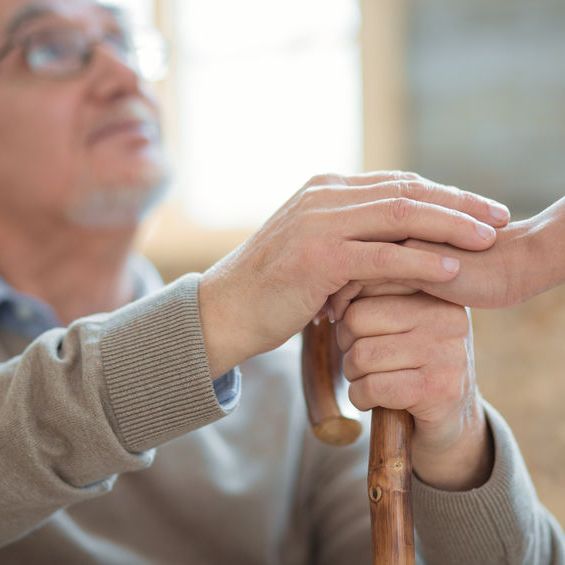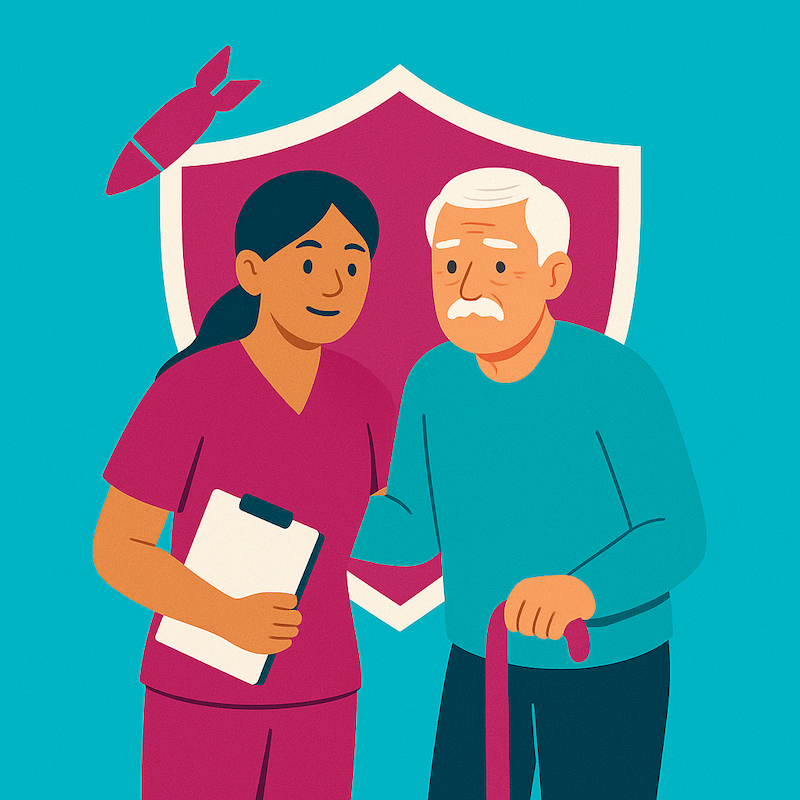5 Effective Communication Tips to A Person with Dementia
iSavta | 30.06.2020
How many times have you been frustrated when talking to a person with dementia? Whether he/she is a family member or your client, as a caregiver, it is certainly a challenge to communicate with people with such conditions. Because dementia affects memory, logic, and even social skills, it intermeddles with daily activities.

While it is understandable that taking care of a patient with dementia is really challenging, frustrating and time-consuming, doing what’s best and ideal should still be preferential. With this, even communication should be effective, this way, excellent care can be achieved. Because of the experience of others, some best practices are shared here so interacting with the patient can become more meaningful.
RESPECT
Always be respectful no matter what your loved one/client is going through. You might sometimes think that you are currently better because the light of their youthfulness has diminished while we are now enjoying the prime of our lives, however, our attitude should always be courteous. It is easy to get upset and lose temper when you are dealing with a dementia patient, however we have to maintain respect and understand their situation. Although their brain cells might be dying and cannot easily comprehend us, they can remember the feelings they had during your conversation. Our goal is to have productive conversation with them, and respect will be the number 1 requirement.
SMILE
We know from our college Psychology classes that non-verbal communication plays a greater role in communication (90%). Appropriately smiling, nodding, having a calm voice and tone, or having happy facial expressions radiates a positive vibe towards our patient that would in turn make them happy and calm as well. Focus on the manner of saying things rather than the words. Since our patients are already undergoing cognitive decline, they will focus on how we say things rather than the specific words we are saying.
TWO CHOICES
Whenever we want to ask them about something, it is best to give them two options to choose from. Let’s say regarding food, rather than asking what they would like to eat, we can ask them whether they’d like to eat chiken or fish, then it becomes easier for them to process your communication and give you an answer. Refrain from using open-ended and long questions, short questions with choices seem easier for them to grasp and easier for them to respond too.
BOOST HEARING
Many times, it is not really because they don’t understand what we are trying to tell them, rather, they were not able to hear what we are saying clearly. Remember that at this age, they are also prone to auditory issues. They can use their hearing aids if they have one. It is also good to face the patient when you are talking to them and speak clearly - many times they look at the lips and read them so they can understand better. You may also use an amplifier like a pocket talker for you to have better volume, but don’t shout/yell at them. It will also be easier for them to listen to low-pitched voice than high-pitched ones.
CALMNESS IN CONVERSATION
While we want to have a meaningful conversation with our patients, it is good to refrain from it especially when we feel stressed or frustrated. If you are in a state of disappointment, it will be good to have a short break, to breathe in & breathe out first and relax, once you are calm, that’s the time to open up a purposeful conversation. When your mind is cool and composed, it’s the best time to have a productive conversation.
Without communication, it is impossible to achieve our goals, however, when we just shoot conversations carelessly, it could do more harm than good. Making our conversations more deliberate, prudent and cautious is the wisest thing to do when communicating with dementia patients. We hope you will have improved rapport with your patients and achieve better productivity now that these tips have become clearer to you.











